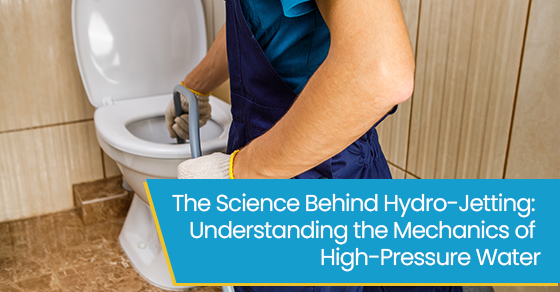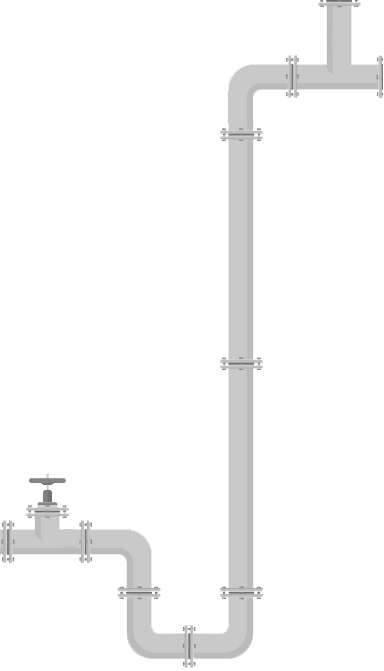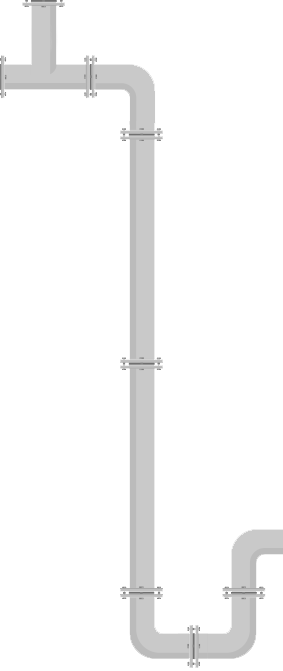The Science Behind Hydro-Jetting: Understanding the Mechanics of High-Pressure Water
Posted by Jason Genah on 17-11-2023

Up until a few years ago, the only way to unclog a blocked sewer line or drain pipe was to either use a drain snake or replace the blocked section of the pipe. The drain snake, as effective as it is, can also fail with severe clogs, which means spending a lot of money on cutting out the affected piece of pipe and then replacing it with a new one.
The good news for homeowners is that there is a much more effective way of clearing clogs, debris, grease, and other substances from sewer lines and drain pipes called hydro-jetting or hydro jet cleaning. You can call our professionals at Drain King Plumbers for the best hydro jet cleaning in Toronto.
What is hydro-jetting?
Hydro-jetting is the process of using water at high pressure to remove clogs or clean the gunk and grime from drain pipes or sewer lines. A compressor is used to shoot high-pressure water through a pipe. The head of this pipe typically has a nozzle that lets out water in both forward and backward directions.
There is a front-shooting outlet that fires a high-pressure jet of water to rip through the clog. Two, three, or even four outlets can fire jets of water backward that assist the forward momentum of the pipe through the sewer line.
This process is generally preferred over other methods of drain unclogging because of the minimal manual effort, lack of harmful chemicals, efficiency, and affordability. Still, it should be noted that not all clogs can be addressed with hydro-jetting, and it is recommended to call a professional to make sure this approach is the right way to go.
The Process of Hydro-Jetting
The first step of the hydro-jetting process is the initial inspection. A number of things can cause clogs and drainage issues, so shooting high-pressure water at them may not be the best approach.
The initial inspection involves a professional plumber coming to your home and looking at the affected drains and pipes. Drain King Plumbers use a camera and industry-standard imaging tools to inspect the pipes and then recommend hydro-jetting if required.
Once the professionals have made sure that hydro-jetting is the best option, they will commence the cleaning process, which typically involves a compressor, a pipe, and a specialized nozzle.
The professional will insert the pipe into the clogged drain and use the high-pressure water jets to cut through the clog and try to reach as deeply as possible. Repeated pushes and pulls may be required to thoroughly clean the pipes. As the debris is dislodged, it will get flushed down the pipe due to gravity.
Once the plumber feels that the clog has been cleared, they will perform a second video inspection to verify the results. This makes sure that all the grime and oil stuck to the walls of the pipes have been cleared. All that remains is to clean the tools and equipment used, cover the drains, and test the flow of water through the pipe.
How often should hydro-jetting be done?
Hydro-jetting is not something you need very frequently. If you have just purchased an older home, some drainage repair and maintenance work should be done as soon as possible. Once you get the drains cleaned with hydro-jetting, you can give it a year before calling a professional again.
Depending on the usage of the drainage system, hydro-jetting may be required every two to three years. However, as soon as you notice things like odd smells, slow-moving water, leaks, or any other drainage problems, call a professional and address the issue immediately. This will avoid major damage down the line and expensive repair costs.
The Advantages of Hydro-Jetting
Hydro-jetting is not just an effective unclogging technique but also a preventative maintenance plan because of the deep-cleaning nature of the process. Since the process involves just pressurized water, it is safe and affordable.
If you have the equipment at home and are confident about your plumbing abilities, hydro-jetting can be carried out by yourself. However, it is always recommended to call a professional for assistance with hydro jet cleaning in Toronto, as they will need to assess the situation first.
Due to its effectiveness in getting rid of clogs and grime, it is also considered a preventative maintenance plan. It deep cleans the pipes and is able to get all the grime, dirt, and debris out of any nooks and crannies, making the insides of the pipe like new. This helps with slowly draining pipes, noises coming from the pipes, and odd smells.
Another advantage is that hydro-jetting can help you save on your water bill, which may have been higher than normal because of poor water flow and other related drainage issues.
The Risks Associated With Hydro-Jetting
Not every plumber can carry out a hydro-jetting job. Going into the task without proper reconnaissance can do more harm than good, as it may not have been the right procedure for a particular job in the first place.
Because the pressure of water is so high, older and weaker pipes may get damaged. If the waterproof coating of the pipe is damaged, the hydro jet could make it worse. Similarly, if there is a root infestation damaging the pipes, then hydro-jetting should not be used.
These situations need to be thoroughly assessed by a professional plumber before the hydro-jetting process can start.
Hydro-Jet Cleaning in Toronto: The Bottom Line
Hydro-jetting is a highly effective deep-cleaning process that works well to unclog drain pipes and sewer lines. It also gives them new life by removing all the accumulated grime and oil that other cleaning methods like augers, plungers, and drain cleaning liquids cannot. However, it requires a proper assessment from a professional, so make sure to get in touch with us.
For more information about hydro-jetting and hydro jet cleaning in Toronto, call Drain King Plumbers at 833-983-5663 or contact us here.




